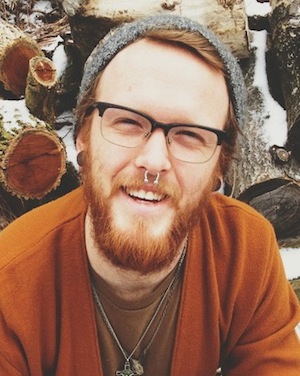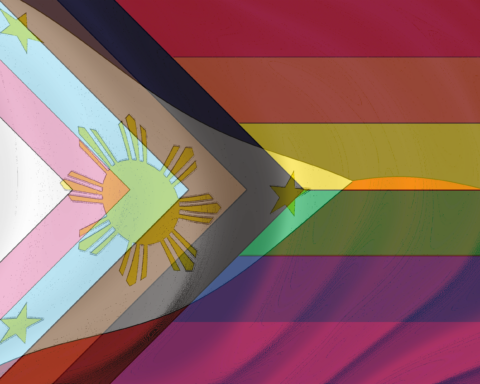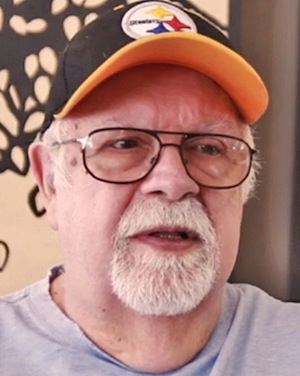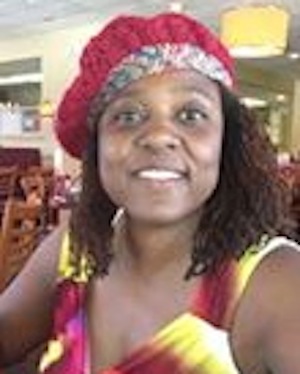
The Book of Acts paints a beautiful picture of the intensely radical vision and practice of the early church: a place where all were of one heart and spirit, and everyone shared what they had voluntarily. The rich sold their land and gave the proceeds to the common purse, the poor came and were satisfied, and there was no need among them. All shared in this abundance with joy and excitement, and the believers added to their numbers daily. Writings from 2nd-century Roman leaders describe this phenomenon among the early Christians and their care not just for their own, but also how they fed and clothed the Roman poor – this was how the Church was described by the very people who oppressed them!
Where is this Church now? It seems we’ve become reactionary. We find it necessary – certainly easier – to substitute the radical inclusiveness of the early church with rigid lines in the sand determining who is in and who is out. Ironically, based on this picture of the early church, I think many of us who are globally wealthy would not like the side of that line on which we might fall. Even those of us who have made attempts to “rid ourselves of privilege” to assuage our personal guilt, would find ourselves on the same side of this line, for privilege is far too systematic and complicated an issue to tackle on our own. So what are we to do? Where do we go from here as a church, especially those of us with power and privilege that – if we’re honest with ourselves – we don’t think we could live without? I can learn a great deal by reading the Gospel through the lens of solidarity. We need to embrace the picture of Christ’s humility described in Philippians 2: 5–8:
In your relationships with one another, have the same mindset as Christ Jesus: Who, being in very nature God, did not consider equality with God something to be used to his own advantage; rather, he made himself nothing by taking the very nature of a servant, being made in human likeness. And being found in appearance as a man, he humbled himself by becoming obedient to death—even death on a cross!
Instead of coming to the table as consumers, we need to come to the table as servants. We live in a society, where even our churches are valued by what product they give – “How good is the music?” “Was the sermon challenging enough for me?” “Do they speak to my current theological convictions?” The list could go on. Where did we go wrong? I look at the Church of the 1st century and the Church now, and I see something gone awry. Can we understand how to be the Church and live the Gospel in our time and place?
___________________________________________
Instead of coming to the table as consumers, we need to come to the table as servants.
___________________________________________
Toyohiko Kagawa, a Japanese Christian evangelist, reformer, pacifist, and labor activist, sums up our church dilemma in his book 1936 book Brotherhood Economics. His words still ring eerily true today:
Though they profess belief in the height and depth and breadth of this love, many Christian churches hesitate to let it permeate man’s (sic) consciousness and develop a love movement. We must not forget that this hesitancy is due mainly to the history of the Protestant Church and the capitalist society in which it functions. The majority of church organizations today are dependent, unfortunately, on the privileged class of profiteering society… The churches are rendered incapable of taking the conscious life of Christ as taught in the New Testament into their lives. This explains the existence of weak Christian churches and their impotence in the turmoil of the world today.
 The Presbyterian Peace Fellowship has begun asking what it means to be the Church in our time and place in light of our commitment to non-violence as a Christian principle and our understanding of solidarity as the way in which mission is lived out. In a time when mainline churches are declining and desperately grasping onto the little power and money that’s left, the first to go in budget and staff cuts are the “nonessential idealisms” such as social justice and peacemaking programs. Instead of following this institutional trend, our executive director, Rick Ufford-Chase, recently presented a proposal* to our National Committee focused on moving forward in encouraging, equipping, and investing in peace-centered communities across our country. This proposal seeks to help us rediscover our role as servants of solidarity – to actively engage in peacemaking in our local communities and neighborhoods by partnering with churches and other organization seeking justice and working for the common good.
The Presbyterian Peace Fellowship has begun asking what it means to be the Church in our time and place in light of our commitment to non-violence as a Christian principle and our understanding of solidarity as the way in which mission is lived out. In a time when mainline churches are declining and desperately grasping onto the little power and money that’s left, the first to go in budget and staff cuts are the “nonessential idealisms” such as social justice and peacemaking programs. Instead of following this institutional trend, our executive director, Rick Ufford-Chase, recently presented a proposal* to our National Committee focused on moving forward in encouraging, equipping, and investing in peace-centered communities across our country. This proposal seeks to help us rediscover our role as servants of solidarity – to actively engage in peacemaking in our local communities and neighborhoods by partnering with churches and other organization seeking justice and working for the common good.
In Rick’s proposal he states,
“The Presbyterian Peace Fellowship should intentionally develop the capacity to shape a grassroots movement of Presbyterians who will carry out Jesus’ commitment to peace, justice and transformative nonviolence. Our goal should be to have thirty thousand Presbyterians who are affiliated with the PPF and who support us in the work of transforming the Presbyterian Witness for peace in the United States.
Put another way, as the denomination continues to shrink, we should foster a bold commitment across the Presbyterian Church (USA) to become known for our distinctive witness for peace that is grounded in distinctive tenets in the reformed faith:
- our trust in scripture, and the radical nature of the gospel stories and teachings of Jesus,
- our celebration of the gift of grace freely given by God as we wrestle with the powers and principalities of evil in our own lives and in the world,
- our conviction that we are shaped by our historic confessions,
- and our constant willingness to be changed by the movement of God’s spirit in the world. (We are reformed and always being reformed.)…
Traditional ways of relating to the church are rapidly disappearing. This is painful for many of us, but we can see the movement of God’s spirit in this moment as well. For instance:
- we see the church moving toward the edges of our society and reclaiming its role in speaking truth to power.
- Our communities are beginning to recognize that we must ask more of one another as we seek together to be faithful in an empire culture that is largely antithetical to the gospel of peace.
- We see growing diversity among our members in terms of race, culture, gender, generational identification and sexual orientation.
- We are being transformed in positive ways by our experience of witnessing to our faith in a more religiously pluralistic and open society, seeing those in other religious traditions as partners and seeking common ground for our shared work in the world.
- Shrinking resources are forcing us to refocus our priorities away from institutional maintenance, caring for property, and professional staffing models developed in the 20th Century, and we see new possibilities that have the potential to change our lives and our communities as a result.
… We should focus our efforts on encouraging the creation of small, intentional, communities to support their members in living out values grounded in the Gospel of Jesus, speaking truth to power, and in taking nonviolent action together, and resisting the seduction and false promises of the dominant culture.*
When I see a vision like that for Christians, I don’t feel scared about what’s happening to the Church – I feel overjoyed! What if churches and Christians were once again recognized by how they cared for their communities, neighborhoods, and the world! And not in a charity model that elevates “us” above “those who need us,” but in a way that understands we are equally in need of one another! What if we really looked to Christ as our model and humbled ourselves even to the point of death, served others above ourselves until it kills us? Solidarity steps into suffering – it lives into compassion, which defined properly means, “to suffer with.”
___________________________________________
This isn’t something we have conjured up, some formula for a new Christianity that is more attractive than the old model – it’s not time for the upgrade. There is no upgrade. The Christian vision hasn’t changed; we just lost sight of the real thing at some point.
___________________________________________
There is a re-formational movement of Christians rediscovering what it means to live into this vision – a vision so old it seems new. This isn’t something we have conjured up, some formula for a new Christianity that is more attractive than the old model – it’s not time for the upgrade. There is no upgrade. The Christian vision hasn’t changed; we just lost sight of the real thing at some point. The thing about consumerism is that it’s sexy, and even the Church gets caught up in it sometimes. But thankfully, and by the Lord’s grace, that’s not where it has to end. The prodigal Church is welcomed home with open arms.
As we follow the Spirit forward, let us meditate upon the words of Kagawa as he calls the Church to places of love, struggle, and solidarity with the “other”, in whose face we find the very face of our Lord.
Don’t hide
don’t run
but rather
discover in the midst of fragmentation
a new way forward:
a new kind of journey
marked by its fragility,
uncertainty
and lack of definition
And on that path
to hold those hands
that even in their brokenness
create a new tomorrow.
To dance at the margins
and to see the face of Christ
where hurt is real and pain a way of life.
To be touched
in the eye of the storm,
aware that tomorrow may not bring peace.
Impossible you say:
Let me retreat
and find rest.
What rest my friend
in these fragmented times?
Unless you lead me Lord,
the road I journey is all too hard.
Through trust in Thee alone
can I go on.
__________________________________________________________________________________
 *For Rick Ufford-Chase’s complete proposal to PPF click here.
*For Rick Ufford-Chase’s complete proposal to PPF click here.
Read more articles in this series.






Unbound Social